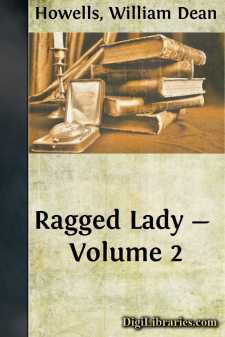Categories
- Antiques & Collectibles 13
- Architecture 36
- Art 48
- Bibles 22
- Biography & Autobiography 816
- Body, Mind & Spirit 145
- Business & Economics 28
- Children's Books 18
- Children's Fiction 14
- Computers 4
- Cooking 94
- Crafts & Hobbies 4
- Drama 346
- Education 58
- Family & Relationships 59
- Fiction 11834
- Foreign Language Study 3
- Games 19
- Gardening 17
- Health & Fitness 34
- History 1378
- House & Home 1
- Humor 147
- Juvenile Fiction 1873
- Juvenile Nonfiction 202
- Language Arts & Disciplines 89
- Law 16
- Literary Collections 686
- Literary Criticism 179
- Mathematics 13
- Medical 41
- Music 40
- Nature 179
- Non-Classifiable 1768
- Performing Arts 7
- Periodicals 1453
- Philosophy 66
- Photography 2
- Poetry 897
- Political Science 203
- Psychology 45
- Reference 154
- Religion 516
- Science 126
- Self-Help 86
- Social Science 82
- Sports & Recreation 34
- Study Aids 3
- Technology & Engineering 59
- Transportation 23
- Travel 463
- True Crime 29
Our website is made possible by displaying online advertisements to our visitors.
Please consider supporting us by disabling your ad blocker.
The Story of a Play A Novel
Description:
Excerpt
The young actor who thought he saw his part in Maxwell's play had so far made his way upward on the Pacific Coast that he felt justified in taking the road with a combination of his own. He met the author at a dinner of the Papyrus Club in Boston, where they were introduced with a facile flourish of praise from the journalist who brought them together, as the very men who were looking for each other, and who ought to be able to give the American public a real American drama. The actor, who believed he had an ideal of this drama, professed an immediate interest in the kind of thing Maxwell told him he was trying to do, and asked him to come the next day, if he did not mind its being Sunday, and talk the play over with him.
He was at breakfast when Maxwell came, at about the hour people were getting home from church, and he asked the author to join him. But Maxwell had already breakfasted, and he hid his impatience of the actor's politeness as well as he could, and began at the first moment possible: "The idea of my play is biblical; we're still a very biblical people." He had thought of the fact in seeing so many worshippers swarming out of the churches.
"That is true," said the actor.
"It's the old idea of the wages of sin. I should like to call it that."
"The name has been used, hasn't it?"
"I shouldn't mind; for I want to get a new effect from the old notion, and it would be all the stronger from familiar association with the name. I want to show that the wages of sin is more sinning, which is the very body of death."
"Well?"
"Well, I take a successful man at the acme of his success, and study him in a succession of scenes that bring out the fact of his prosperity in a way to strike the imagination of the audience, even the groundlings; and, of course, I have to deal with success of the most appreciable sort—a material success that is gross and palpable. I have to use a large canvas, as big as Shakespeare's, in fact, and I put in a great many figures."
"That's right," said the actor. "You want to keep the stage full, with people coming and going."
"There's a lot of coming and going, and a lot of incidents, to keep the spectator interested, and on the lookout for what's to happen next. The whole of the first act is working up to something that I've wanted to see put on the stage for a good while, or ever since I've thought of writing for the stage, and that is a large dinner, one of the public kind."
"Capital!" said the actor.
"I've seen a good deal of that sort of thing as a reporter; you know they put us at a table off to one side, and we see the whole thing, a great deal better than the diners themselves do. It's a banquet, given by a certain number of my man's friends, in honor of his fiftieth birthday, and you see the men gathering in the hotel parlor—well, you can imagine it in almost any hotel—and Haxard is in the foreground. Haxard is the hero's name, you know."
"It's a good name," the actor mused aloud. "It has a strong sound."
"Do you like it? Well, Haxard," Maxwell continued, "is there in the foreground, from the first moment the curtain rises, receiving his friends, and shaking hands right and left, and joking and laughing with everybody—a very small joke makes a very large laugh on occasions like that, and I shall try to give some notion of the comparative size of the joke and the laugh—and receiving congratulations, that give a notion of what the dinner is for, and the kind of man he is, and how universally respected and all that, till everybody has come; and then the doors between the parlor and the dining-room are rolled back, and every man goes out with his own wife, or his sister, or his cousin, or his aunt, if he hasn't got a wife; I saw them do that once, at a big commercial dinner I reported."
"Ah, I was afraid it was to be exclusively a man's dinner!" the actor interrupted....












